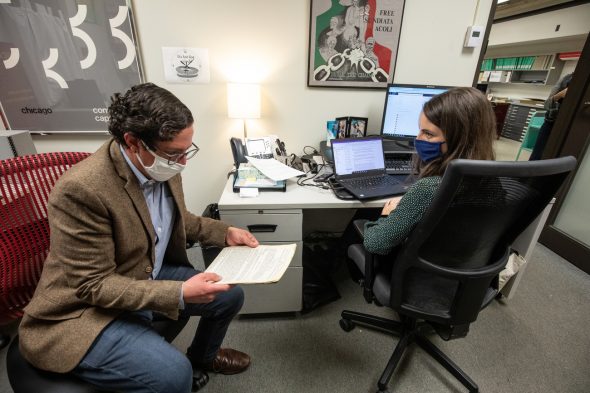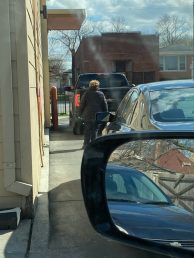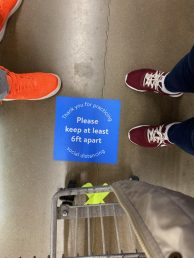University archives seek stories for ‘Six Feet Apart: Stories from UIC during COVID-19’

Since April, the University of Illinois Chicago’s Special Collections and University Archives has been collecting materials to document how the COVID-19 pandemic has affected life at UIC.
The move to receive and archive the material is part of “Six Feet Apart: Stories from UIC during COVID-19,” an effort to document history in the making since the coronavirus was deemed a global pandemic in March.
The University Library’s Special Collections and University Archives, the UIC Humanities in Medicine (HuMed) student group and the UIC College of Medicine are leading the effort to collect documentation that could aid future historians.
Since the project began, the library has received about 40 submissions, but donations have tapered off and officials are seeking to reinvigorate donations as the pandemic continues. The aim is to eventually have the collection go online.

When the COVID-19 pandemic hit the country and people were forced indoors to quarantine, many researchers and experts looked for lessons from the 1918 Spanish Flu pandemic. The lessons have informed our reaction to the virus, including showing how mask use was a major factor in reducing the spread.
“People are interested in researching those times to see what people were saying about it, how it impacted what people were doing every day, what their mindset was like and what we can learn from that and what it says about humanity,” said Leanna Barcelona, university archivist and assistant professor. “This project is unique in that we are asking people to tell us in real-time what they’re feeling and that’s maybe not something that archives have always done.”
Among the submissions, Barcelona noted that most are written accounts though there are images and at least one audio recording from a student documenting their life. A faculty member from the department of medicine wrote about what it was like to experience the pandemic from the front lines.

“We are in such a unique position because we have UI Health and the College of Medicine,” Barcelona said. “It’s interesting because you see stuff on the news but this is an actual personal account of what they are dealing with.”
David Greenstein, lecturer for Special Collections and University Archives, in the spring was teaching an Honors College seminar about using UIC’s archival collection to research Chicago in 1968 when the quarantine forced classes to go virtual. As a result, he scraped his plans because the archive’s physical materials were no longer available for use and they pivoted to assisting the archive project by creating and collecting records of Chicago during COVID-19, he said.
Students were asked to select five documents that could help tell the story of how they — as well as other UIC students and others in the Chicago area — coped with the pandemic. Their primary sources could include emails, photos, social media posts and recipes that could explain and preserve this time. After making their choices, they had to justify their selections and those who wanted to submitted them to the archive project, said Greenstein.
“I think the class members appreciated the opportunity to play a role in shaping the historical record,” Greenstein said. “The chance to contribute to a set of materials that may be used in the future to understand the pandemic was an opportunity to not only think critically about what issues or voices should be saved, but also to do something about it.”
Veronica Payton, a senior majoring in kinesiology, was in Greenstein’s class and submitted photos from the South Side of Chicago to show how the pandemic was affecting people differently throughout the area.
Her pictures included shots from grocery stores with the 6-foot social distancing signs on the floor, long lines of people extending across streets to get into grocery stores, people without vehicles using drive-through lanes in fast-food restaurants as in-person dining was curtailed.
“In my experience, there were still many people who had to work at the essential areas while many others got laid off and were struggling to find a job during the pandemic,” Payton said. “This project was really an eye-opening experience to see the different ways the pandemic has affected people.”
Hannah Schiopu, a junior majoring in criminology, law, and justice, was in Greenstein’s class and felt good that her work, as well as that of her classmates, would help inform subsequent generations of UIC students. She encouraged others on campus to contribute.
She decided to submit personal reflections from her work as a pharmacy technician at a local pharmacy and shared observations about a close friend’s first-hand experience as a victim of COVID-19.
“Reflecting upon my work at the pharmacy helped me realize that as humans, we should never take for granted our days, and we should appreciate those close to us as well as those who care for our communities like first responders, doctors, nurses,” she said. “People should submit archive material to the project because that’s one way of being heard for generations to come and possibly make an impact in the future.”
To contribute go here.
